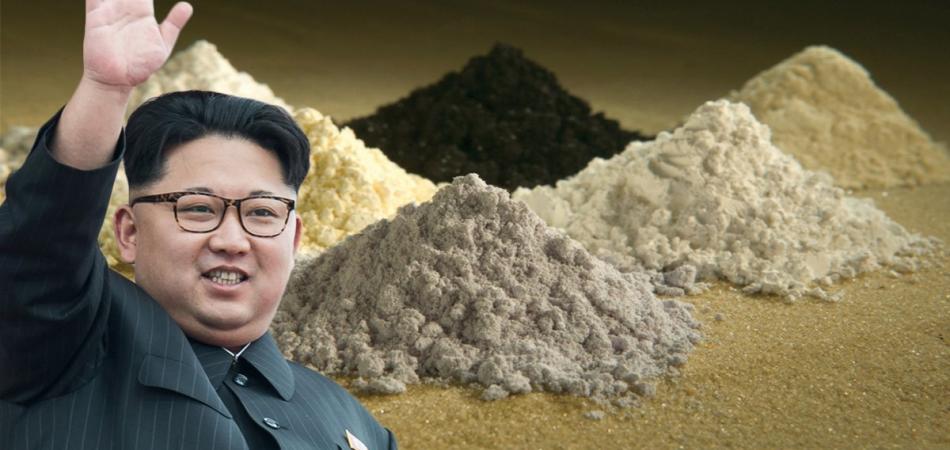

It has been revealed that North Korea is sitting on a huge mineral stockpile which could be the answer to the nation’s extraordinary financial problems.
North Korea has struggled for decades with crushing poverty for a variety of reasons. Domestically, successive administrations have promoted policies of free market suppression and an oversized military programme which has made it impossible for the market to grow.

Minerals Worth $6 To $10 Trillion. Volatile and sporadic changes to the country’s currency have also made their mark, and continued trade sanctions on account of the country’s dismal human rights record and rogue nuclear program have made it all the more difficult for the Hermit Kingdom to make any money.
As a result of the poverty, most machinery in North Korea is seriously outdated meaning that their industrial output is extremely limited. As a result of their inability to trade properly, the budget of North Korea is largely dependent on humanitarian aid from neighboring countries including South Korea, China, and Russia.
However, it has been revealed that North Korea is sitting on an enormous stockpile of minerals which could feasibly be put to use and held to draw the country out of poverty. The minerals in question include zinc, iron, gold, copper, magnesite, limestone, tungsten and graphite. Cumulatively, it is estimated that the stockpile could fetch between $6 trillion and $10 trillion on the international market.
Below the nation’s mostly mountainous surface are vast mineral reserves, including iron, gold, magnesite, zinc, copper, limestone, molybdenum, graphite, and more—all told about 200 kinds of minerals. Also present are large amounts of rare earth metals, which factories in nearby countries need to make smartphones and other high-tech products.
Estimates as to the value of the nation’s mineral resources have varied greatly over the years, made difficult by secrecy and lack of access. North Korea itself has made what are likely exaggerated claims about them. According to one estimate from a South Korean state-owned mining company, they’re worth over $6 trillion. Another from a South Korean research institute puts the amount closer to $10 trillion.

Unfortunately, North Korea finds itself trapped in a vicious cycle as the economic situation does not allow them to purchase the expensive equipment required to actually extract the minerals safely and efficiently.
According to Lloyd Vasey, the founder of the Centre for Strategic and International Studies, North Korean industrialists are being forced to work with increasingly obsolete machinery which has seen their mineral production fall by approximately 30% since the 1990s.

These problems are also exacerbated by the energy production problem in the country which often sees businesses shut down for weeks at a time. Effectively, the less efficient the mineral production is, the more North Korea slides into poverty and the more inefficient their industry becomes.
A potential solution to this problem would be for North Korea to find foreign partners willing to invest in mineral extraction. Given that Kim Jong-Un has proved that he is more open to dealing with foreign countries than either his father or his grandfather, it is possible that this could happen in the relatively near future.
